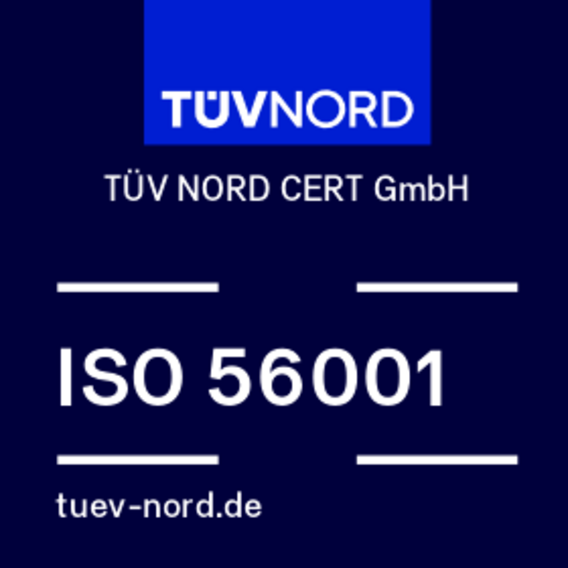
Innovation management with a system
Companies in every industry - and their products - must become more environmentally friendly and digital in order to remain competitive. Trends such as robotics, the Internet of Things and artificial intelligence are opening up new possibilities in production and organisation. They will change our working world. If you want to keep up, you have to be able to develop new things and turn them into success.
ISO 56001 is an international standard. It defines the requirements for an IMS and is suitable for any organisation, regardless of sector or size. The standard provides a common language and a standardised framework for innovation. This promotes cooperation between organisations.
ISO 56001 is a Harmonised Structure-based standard and is compatible with other management standards such as ISO 14001 (environmental management), ISO 9001 (quality management) or ISO 45001 (occupational health and safety management). Innovation management can therefore be smoothly integrated into other operational activities. An innovation management system (IMS) helps you to maximise your innovation potential and create value from it. With ISO 56001 certification, you demonstrate this ability.